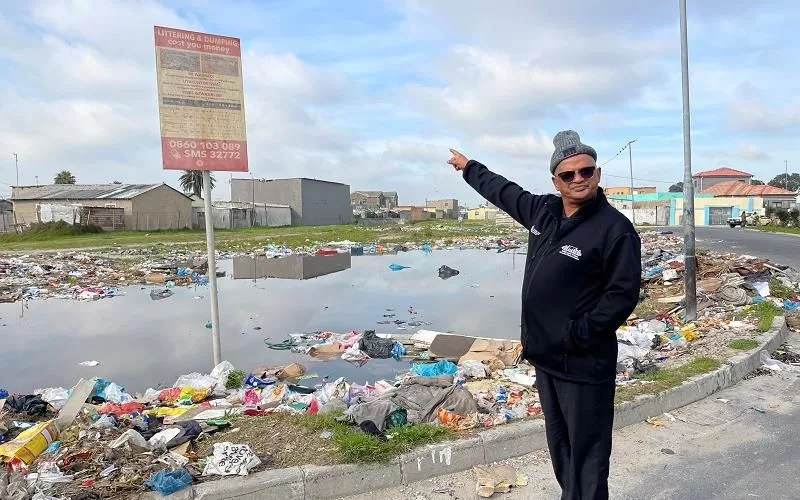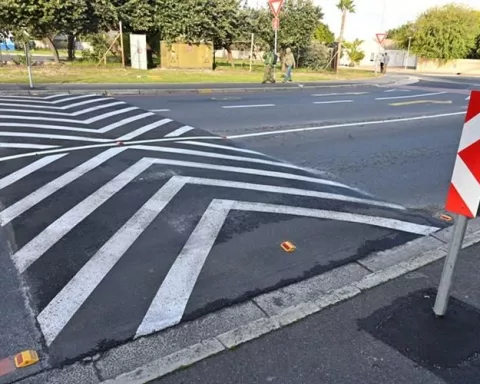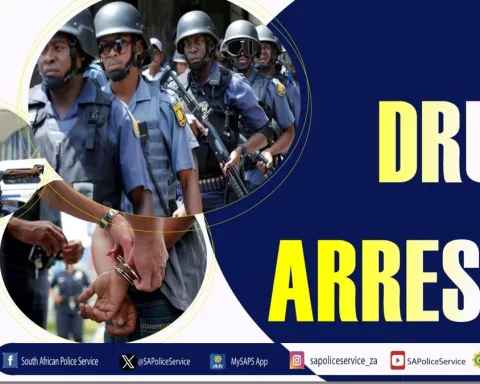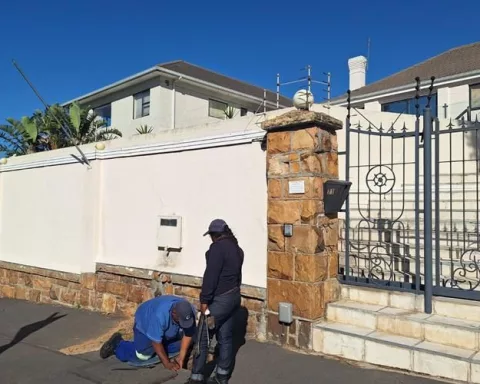Cape Town’s Urban Waste Management By-law Enforcement Unit achieved unprecedented productivity in the 2023/24 financial year, issuing over 2,600 fines for illegal dumping and generating over $300,000 in revenue. The unit worked closely with other departments and urged residents to report unauthorized waste disposal, emphasizing the importance of preserving the environment and public health. In response to recent flooding caused by excessive dumping, the city has set up a hotline for reporting illegal dumping and is dedicated to promoting legal and safe methods of waste disposal.
A Forward-Thinking Strategy in Urban Waste Management: The Cape Town Example. The Urban Waste Management By-law Enforcement Unit in Cape Town reached an exceptional level of productivity in the 2023/24 financial year, issuing 2,631 fines worth R4.334 million (approximately $311,000). The Enforcement Unit collaborated with other departments and urged residents to report illegal dumping. The city’s comprehensive approach indicates its dedication to preserving the environment and public health.
A Year of Outstanding Productivity
The Urban Waste Management By-law Enforcement Unit in Cape Town reached an unheard-of level of productivity in the 2023/24 financial year. The unit’s team handed out an astounding 2,631 fines, amassing a total of R4.334 million (approximately $311,000). In addition to monetary penalties, the unit sent out 1,280 notifications of compliance, thereby obliging offenders to follow regulations or face legal repercussions.
The Enforcement Unit was relentless in its monitoring efforts, scheduling weekly swift operations in the central business districts of the city. These operations, which targeted specific areas, accounted for 55 special initiatives throughout the year, demonstrating the city’s unwavering dedication to providing clean and secure public spaces.
Interdepartmental Coalition and Public Cooperation
The by-law enforcement team went the extra mile, joining forces with other departments on 50 combined initiatives. These collaborations brought together departments such as Public Awareness, Compliance and Education, Cleansing, and Safety and Security. They primarily targeted areas often frequented by homeless individuals, including but not limited to Cape Town, Bellville, and Wynberg CBDs. The numerous operations aimed for communal cleanliness, ensuring a secure and healthy environment for everyone living in the city.
The unit’s records show that they dealt with 767 requests for service (C3 notifications), drawing attention to the underreported issue of unauthorized waste disposal. In response to this, the city has requested its residents to heighten their scrutiny and report illegal dumping in the year to come. The city is confident that with the help of its citizens, it can issue fines as a deterrent to such unlawful activities, thereby protecting the community’s health and advocating for proper waste disposal at assigned sites.
Adhering to the city’s rules, vehicles carrying less than 1.5 tonnes can deposit up to three loads of accepted waste types at the network of designated drop-off locations, without any charges, each day. The existence of these facilities emphasizes that there is no acceptable reason for illegal dumping.
The Adverse Effects of Unlawful Waste Disposal and Community Engagement
The harmful effects of unlawful waste disposal have been glaringly highlighted by recent rainfall. The overloading of rivers and canals due to excessive dumping has led to disastrous flooding, posing a serious threat to public health and property. A significant increase in litter washed up on the beaches of Cape Town has also been noted, indicating that waste disposed of in the city eventually finds its way to the ocean.
Alderman Grant Twigg, a member of the Mayoral Committee for Urban Waste Management, made an impassioned plea to communities living near rivers to help alleviate these issues. He stressed the availability of legal and safe methods of waste disposal and emphasized the duty to report or confront those who choose the easy path of illegal dumping.
The city has set up a 24-hour toll-free hotline (0800 110077) to report illegal dumping. It urges residents to share any information that could assist officers in determining the guilt of offenders, such as photographs of the vehicles involved and their license plate numbers.
The Way Forward
The Urban Waste Management By-law Enforcement Unit in Cape Town is a shining example for waste management and community engagement. Its notable accomplishments in the previous fiscal year underscore the effectiveness of stringent regulations, public education, and active enforcement. The comprehensive, alert approach adopted by the city is indicative of its dedication to preserving the environment and public health. This is a powerful demonstration of how proactive urban waste management isn’t just about rules and penalties, but rather a collective responsibility to build and sustain cleaner, healthier cities.
What was the productivity of the Urban Waste Management By-law Enforcement Unit in Cape Town in the 2023/24 financial year?
The Urban Waste Management By-law Enforcement Unit in Cape Town achieved an exceptional level of productivity in the 2023/24 financial year, issuing 2,631 fines worth R4.334 million (approximately $311,000).
How did the Enforcement Unit collaborate with other departments and promote community engagement?
The Enforcement Unit collaborated with other departments such as Public Awareness, Compliance and Education, Cleansing, and Safety and Security, and urged residents to report illegal dumping. The city also set up a 24-hour toll-free hotline (0800 110077) for reporting illegal dumping.
What were some of the adverse effects of unlawful waste disposal?
The overloading of rivers and canals due to excessive dumping has led to disastrous flooding, posing a serious threat to public health and property. A significant increase in litter washed up on the beaches of Cape Town has also been noted, indicating that waste disposed of in the city eventually finds its way to the ocean.
What is the city’s approach to waste disposal?
The city is dedicated to promoting legal and safe methods of waste disposal and has set up a network of designated drop-off locations where vehicles carrying less than 1.5 tonnes can deposit up to three loads of accepted waste types at no charge each day.
What is the importance of community involvement in waste management?
Community involvement is crucial in waste management as it helps to deter illegal dumping and raise awareness of the harmful effects of unlawful waste disposal. The city urges its residents to report illegal dumping and share any information that could assist officers in determining the guilt of offenders.
What is the significance of the Urban Waste Management By-law Enforcement Unit’s accomplishments in the previous fiscal year?
The Urban Waste Management By-law Enforcement Unit’s accomplishments in the previous fiscal year underscore the effectiveness of stringent regulations, public education, and active enforcement. The city’s comprehensive approach indicates its dedication to preserving the environment and public health, and serves as a powerful demonstration of how proactive urban waste management is a collective responsibility to build and sustain cleaner, healthier cities.












